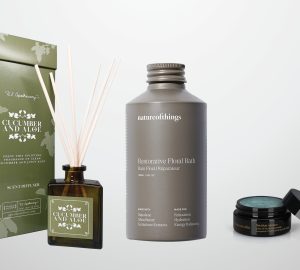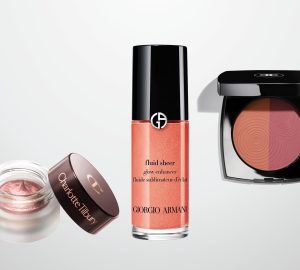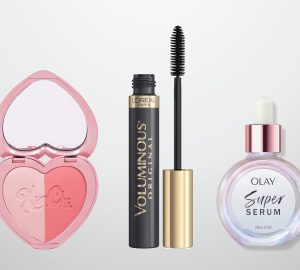Beauty may be only skin deep, but what you put on skin matters. Pores that let sweat and oil out, also let lotions, soaps and fragrances in, says Mira Herman, founder of California-based Rosemira. Big-brand products might be pretty, but what’s inside—not so much, she says.
St. Louisans wanting to avoid harmful ingredients have Jean Scholtes’ Kind Soap Company. Scholtes first experimented with natural products after years of sensitive skin not taking kindly to conventional soaps. She initially sold her wares at other stores, online and at farmers markets, but now has her own Webster Groves store.
Both companies use natural ingredients, including olive oils, natural butters and essential oils and extracts. “These natural ingredients replace synthetic fragrances, artificial ingredients like sulfates, and toxic or potentially harmful chemicals, including phthalates and formaldehyde, which are known carcinogenic preservatives,” Scholtes says.
The benefit to natural, organic-based beauty products is guilt-free results. “I don’t want results that compromise my integrity, the planet or my body,” Herman says. And natural products work just as well, if not better, than conventional ones, the women say. “Dozens of people have said that once they tried our soap, they can’t go back to buying it off the shelf,” Scholtes says.
Finding truly natural or organic beauty products can be a puzzle, but Scholtes and Herman agree that the label doesn’t have to say ‘organic’ to be clean. “A smaller company might not be able to afford to certify its product,” Herman says. And labels can be misleading, especially in the beauty industry. “There’s not a lot of regulation for bath and body products like there is for food,” Scholtes says.
The best way to ensure you’re buying a natural product is to look at the ingredients. Herman says you can’t expect to know what every listed ingredient is, but she advises avoiding products with long lists of things you are unable to pronounce. “If there’s a product you like, and you see one or two ingredients you don’t love, it’s not going to kill you. It’s a matter of balance,” she says.
Products that list ‘fragrance’ instead of the actual scent—like lavender essential oil—probably contain synthetic fragrance, a common allergen that can cause headaches, eye irritation and premature aging, Scholtes says. She also recommends avoiding parabens and alcohols. “Alcohol is drying, and paraben is a preservative that doesn’t have the best safety record,” she says.
While there is a growing demand for natural beauty products, companies like Kind must educate consumers on why their products’ higher cost is worth it, Scholtes says. “Many people don’t understand why they should pay $7.50 for soap,” she says. “They need to know the difference between synthetic and natural ingredients, because you get what you pay for in so many ways.”
Pictured: Jean Scholtes of St. Louis-based Kind Soap Co.








